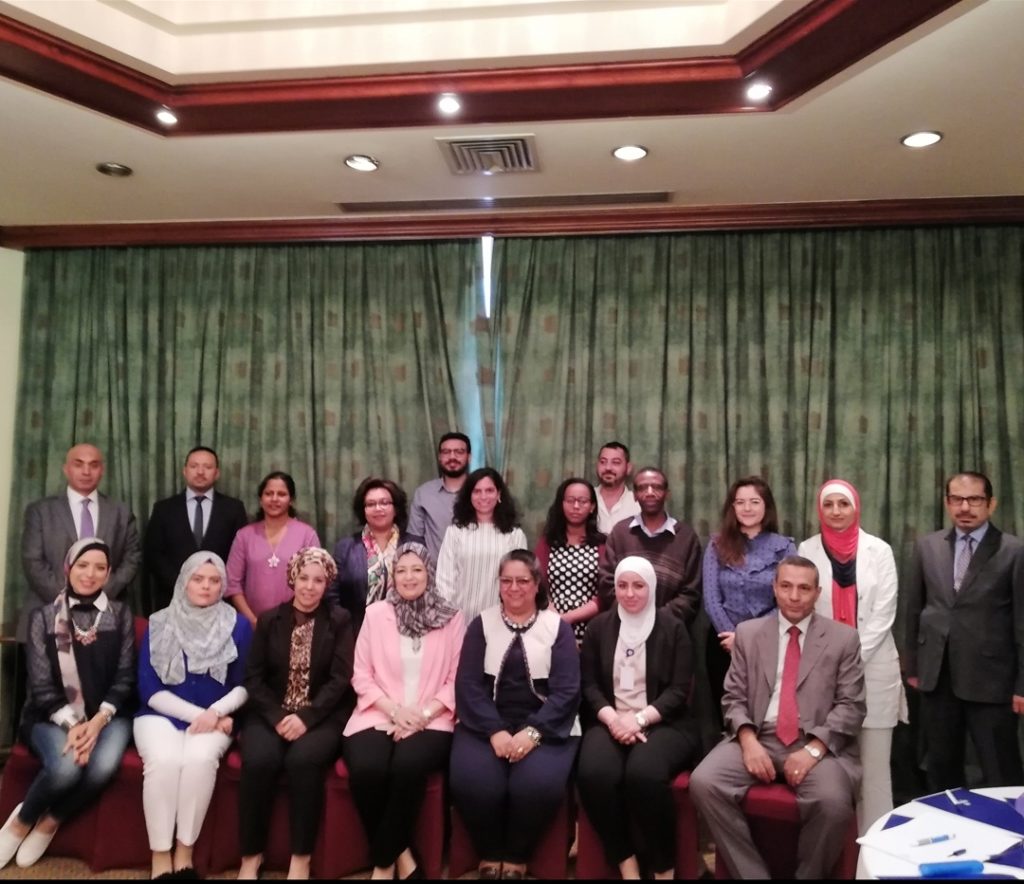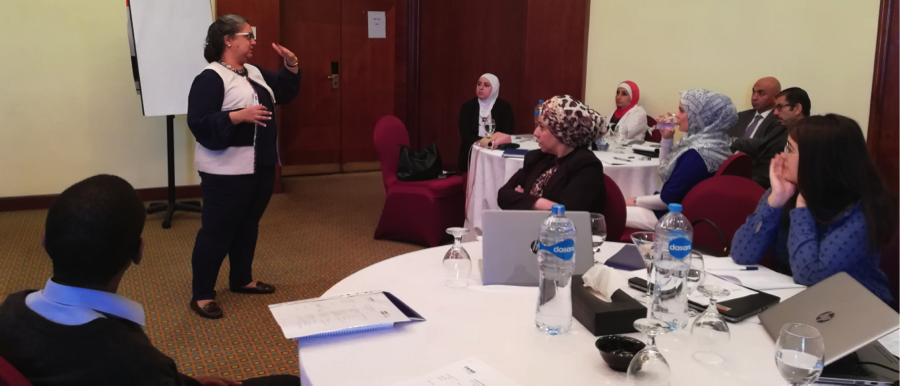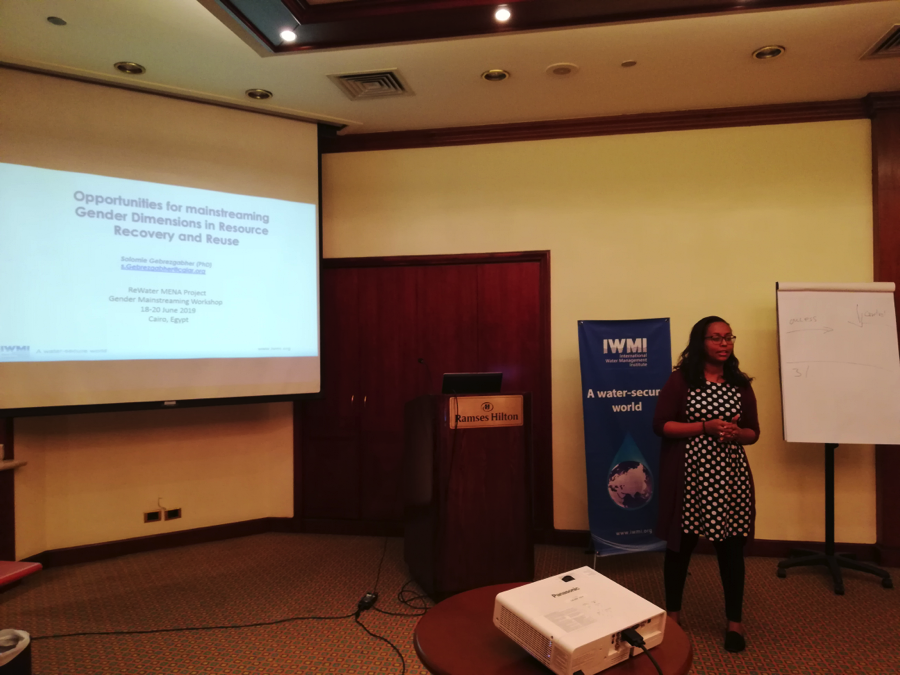“Wastewater isn’t about water, it’s about people”, researchers tell MENA gender experts and partners.

Unlocking the potential of gender mainstreaming in the MENA region’s water reuse sector was the focus of a 3-day workshop held from 18-20th June in Cairo. The workshop, convened by the ReWater MENA project, was designed to provide the participants with ideas on how to mainstream gender in their work plans.
Project partners were encouraged to consult and involve women in needs assessments, decision-making processes and in planning and monitoring. The participatory approach of the ReWater MENA project enables all voices to be heard and will ensure gender inclusion during the development of various project outputs such as the sourcebook, local wastewater treatment, and reuse plans as well as stakeholders’ capacity building.
“Wastewater isn’t about water, it’s about serving the needs of people, women, and men,” said Everisto Mapedza of the IWMI Ghana Office. “When we look at wastewater management, we must consider various dimensions, age groups, cultures, social contexts, gender. It is crucial to differentiate between men, women, children and old people’s roles and responsibilities in Water Reuse.”
The workshop brought together representatives from Egypt, Lebanon, Jordan and Ghana with a diverse group of representatives from the Jordanian Royal Scientific Society (RSS), the Arab Countries Water Utilities Association (ACWUA), and the Lebanese Agricultural Research Institute (LARI), the International Center for Agricultural Research in the Dry Areas (ICARDA), the Centre for Environment and Development for the Arab Region and Europe (CEDARE), the Egyptian Holding Company for Water and Wastewater (HCWW), the Food and Agriculture Organization of the United Nations (FAO), the Arab Water Council (AWC) and representatives from IWMI’s Ghana Office.

Participants discussed multiple perspectives for assessing the implications for women and men of any planned policies or programs concerned with water reuse, gender analysis approaches and possibilities of integrating gender equality in the activities carried out by the project’s partners. The workshop included a presentation of SIDA’s gender policy and water reuse policies in the region, as well as IWMI’s case studies of water reuse in different countries.
“It is important to assess the gender dimension of an investment climate and evaluate equity in employment opportunities, specifically in Resource Recovery and Reuse (RRR) cases and models,” said Solomie Gebrezgabher, a researcher from IWMI’s Ghana Office. “Women’s representation in management and business operations is dynamic during the implementation of RRR business models.” She added that the current gender mainstreaming practices would include an analysis of gender dimensions and inclusivity.

The project partners also shared some of their planned gender mainstreaming initiatives. ACWUA will develop training for various topics such as sanitation safety planning, governance, technologies, and business models for water reuse projects, resulting in recruiting women as trainees, trainers, coordinators, and participants in field visits. The Jordanian Royal Scientific Society will integrate gender into their work plans by inviting women Community Based Organizations (CBO) to participate at the project’s National Learning Alliance (NLA), by providing the local CBOs with appropriate technologies for water reuse, economic and financial models that work better for their communities. RSS representatives shared that their participatory planning for water reuse models would include specific analysis and actions to promote gender equity
Participants were able to improve their understanding of why gender mainstreaming in their work plans is important and also acquired effective monitoring mechanisms to measure gender equity in their work progress.
“One of the key outcomes of the workshop is that each participant will nominate a gender focal point in their organizations who could follow on mainstreaming gender in the project’s activities, “says Gihan Bayoumi, Regional Manager of ReWater MENA project.
